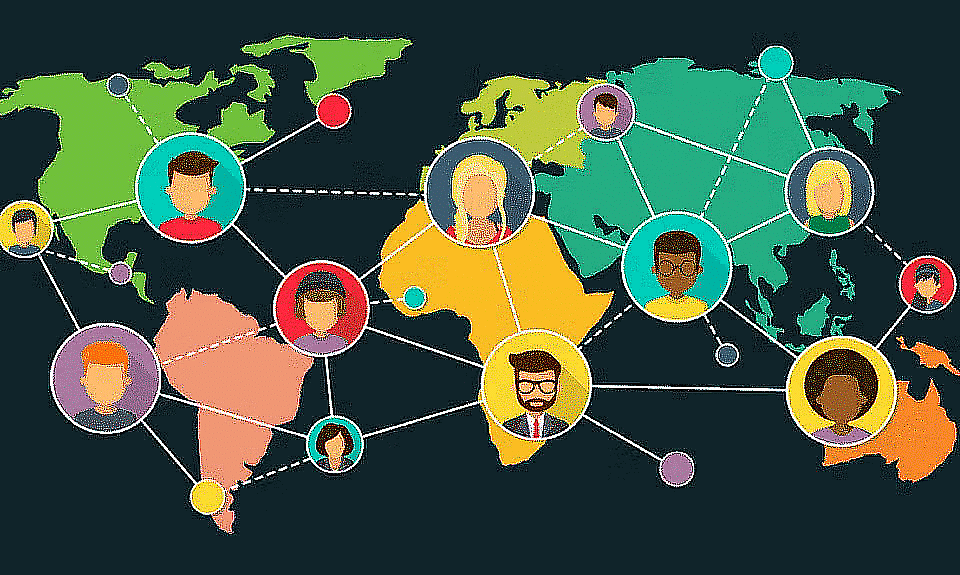Globalisation Revision Notes | Political Science Class 12 - Humanities/Arts PDF Download
Overview
Overview
Globalization, as discussed in the chapter, refers to the interconnectedness and integration of economies, cultures, and societies worldwide. It involves the exchange of goods, services, ideas, technology, and culture across borders, facilitated by advancements in communication, transportation, and trade. Globalization impacts various aspects of life, including economics, politics, culture, and the environment, leading to both opportunities and challenges for nations and individuals in the modern world.

FACTS THAT MATTER
- Globalization involves the integration of a country's economy through the free flow of trade and capital, potentially leading to phenomena like 'Brain drain' across borders.
- Benefits of globalization include increased trade in goods and services, influx of private foreign capital, higher foreign direct investment, job creation, enhanced domestic economies, improved productivity, and healthy competition.
- However, globalization can also have negative impacts such as insufficient job creation, difficulties for less educated individuals to adapt to modern cultivation methods, income inequality, and exploitation of natural resources and labor.
- Globalization results from historical factors, technological advancements, liberalization of foreign trade and investment policies, and the expansion of multinational corporations.
- Its consequences can be political, economic, and cultural, with advancements in technology bolstering state surveillance capabilities, particularly regarding citizen information.
- Economic globalization involves flows of commodities, capital, people, and ideas, prompting wealthy nations to invest abroad, and underscores the roles of international financial institutions like the IMF and WTO in shaping global economic policies.
- Cultural globalization broadens choices and modifies cultures without necessarily supplanting traditional norms, contributing to a broader cultural outlook while promoting cultural diversity.
- Globalization has faced criticism on political, economic, and cultural fronts, including concerns about weakened state sovereignty, exacerbated economic disparities, and cultural erosion. The World Social Forum has been a vocal opponent of neoliberal globalization.
- In India, globalization led to the establishment of foreign companies as a response to the 1991 financial crisis, signaling India's recognition of the necessity to integrate its economy with the global market.
- The globalization process involves liberalization, advocating for trade and investment freedoms, resource allocation flexibility, rapid technological advancement, and privatization, which allows private and foreign entities to produce goods and services.
- Resistance to globalization in India has arisen from various groups, including left-wing protests against economic liberalization, trade unions opposing multinational corporations, and cultural objections to foreign influences such as Western media and attire.
- Environmental movements, occurring nationally and internationally, aim to combat environmental degradation, with notable pressure in countries like Mexico, Chile, Brazil, Malaysia, Indonesia, and India.
- These movements can be categorized into forest movements, anti-mining and anti-mineral industry movements targeting water pollution, and anti-dam movements.
- 'Resources Geopolitics' concerns the distribution of resources and the practices of neo-colonialism, which involve deploying military forces near resource-rich areas, securing sea-lanes, and supporting friendly governments to ensure resource access.
- Oil plays a crucial role in the global economy, often tied to conflicts, while freshwater scarcity could potentially lead to future conflicts.
- Indigenous peoples advocate for environmental and resource rights, with communities in regions like Oceania, Central and South America, Africa, India, and Southeast Asia highlighting their struggles, agendas, and quest for equal status.
- Despite historical neglect, the issues of indigenous community rights have gained international attention, with organizations like the World Council of Indigenous People obtaining consultative status in the UN.

WORDS THAT MATTER
Globalization: Integration of an economy with other countries' economies through the free flow of trade and capital.
World Social Forum: A global platform that unites human rights activists, environmentalists, and women activists to address global issues.
Privatization: The process allowing private sector companies to produce goods and services within a country.
Liberalization: Relaxation of government rules and regulations, particularly in service and industrial sectors.
Cultural Heterogenization: The preservation and manifestation of cultural differences and distinctiveness amidst the processes of globalization.
|
34 videos|308 docs|51 tests
|
FAQs on Globalisation Revision Notes - Political Science Class 12 - Humanities/Arts
| 1. What is globalisation and how does it impact the world economy? |  |
| 2. What are the main drivers of globalisation? |  |
| 3. How does globalisation impact cultural diversity? |  |
| 4. What are the consequences of globalisation on developing countries? |  |
| 5. How does globalisation impact the environment? |  |






















